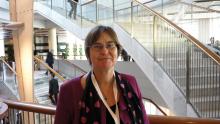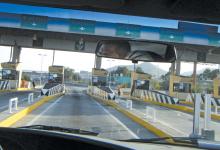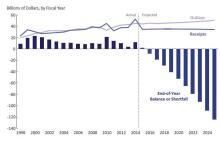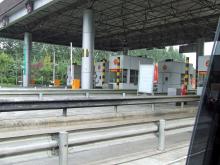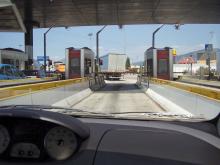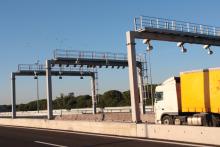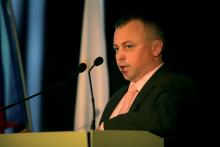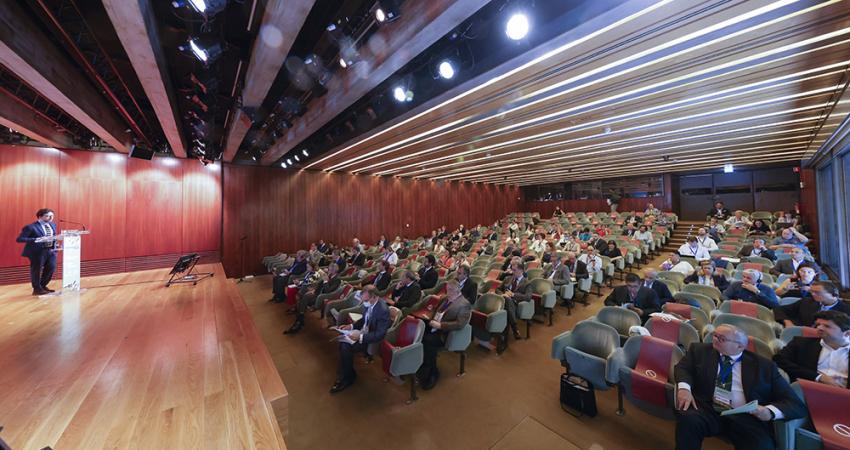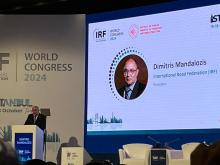The 37th ASECAP Annual Study and Information Days held in Krakow, Poland, gathered some 300 road transport CEOs, experts and government decision-makers making the event "a huge success." Patrick Smith reports
Toll road operators from across Europe have met to discuss the state of their businesses in the current economic climate and how to tackle it. Fabrizio Palenzona, the outgoing President ofHe was opening the 37th ASECAP Annual Study and Information Days held in Krakow, Poland, which gathered close to 300 road transport CEOs, experts and government decision-makers from some 30 countries, making the event "a huge success."
The four-day event, organised in partnership with the ASECAP Polish members from
Accompanied by the Presidents of 21 ASECAP national members they joined the participants in addressing the ASECAP congress main theme 'Socio-economic Repercussions of a European Greener Transport Policy.'
In his message to congress participants, Palenzona said: "The EU transport policy is mature enough to address in a pragmatic and realistic way crucial issues such as electronic tolling, safety, Intelligent Transport Systems and the Eurovignette [basically, common rules on how European Union states may charge heavy goods vehicles for using the road network, the aim of the Eurovignette is to ensure road usage better reflects its true impact on society and the environment by introducing a user pays and a polluter pays principle, and also to shift freight away from roads onto other less-polluting modes of transport such as rail and waterways].
"To this respect, tolling (and the role of motorways concessionaires) is becoming more and more prominent in order to maximise limited financial resources and adopt innovative tools to finance sustainable, safe and high quality infrastructures."
He went on to say that while recourse to tolls characterised the policies of some European countries in the post-war period (as is the case for the countries which at that time founded ASECAP) it has gradually been assuming an increasingly important role. Indeed, while the networks of those countries (franchised networks) have increasingly expanded, at the same time other countries have started to use tolls with different schemes, depending on their history and their socio-economic circumstances. Networks managed in different ways now co-exist in Europe. Even though they are managed with different technological equipment, they can be made interoperable, and they are united by the toll concept, by the concept of pay per use, and by the concept that resources are not infinite and that it is essential to use innovative financing instruments.
"This sector will probably see further expansion, since the European policies aimed at ensuring interoperable toll payment services will result in the introduction of further elements to the sector. ASECAP itself incorporates different experiences and allows different parties to meet, talk, exchange experiences and work together for the common good."
In the light of this, ASECAP's presence and role, particularly in Brussels, the Belgian capital (headquarters of the EU), are increasingly in demand in the preparation of strategic documents, such as the one relating to long-term transport policy.
"The sector of toll motorways in Europe needs to maintain a strong cohesion. It must be able to carry out its activities in a climate of legal certainty in the future, to prevent the occurrence of national situations which cause the operators, the motorway concessionaires, to be affected by legislative provisions or by stances adopted by the national governments without evaluating their negative effects (as occurred in Italy three years ago as a result of a series of actions instigated by previous government bodies which were then progressively eliminated by the following administration). Thus confidence will be restored in the road sector as a whole and it will be allowed to carry out its activities as far as possible in conformity with the objectives of European transport policy and the correct functioning of the internal market. Here too, a role or vocation can be found for ASECAP as common spokesperson at EC level for the legitimate concerns of its members," he said.
Recovery package
Mrs Tsingou, intervening in the session dedicated to the role of concessionaires in the present crisis, presented the EIB actions and support to the EU transport policies, as well as to the Economic Recovery Package [late last year the EU proposed a economic recovery plan worth e200 billion aimed at saving millions of European jobs with the EIB heavily involved].
Moreover, Mrs Tsingou underlined that infrastructure is key to recovery and that public promoters should have a role in fostering public-private partnerships (PPP) projects and facilitating investment in toll motorways.
She also welcomed the major role motorways operators have played in creating wealth, upgrading service quality (traffic efficiency, safety, development of
All the speakers recognised the outstanding relevance of Poland and its neighbouring region as part of the Berlin-Moscow axis and agreed that with the new economic circumstances, both national and European policy objectives require an efficient and better integrated infrastructure.
The conference featured advanced workshops with over 50 presentations covering ITS from research to deployment; 2010 target year for halving 50,000 fatalities on EU roads; bringing into the charging reality the requirements of the EU's Eurovignette Directive; interoperability between national charging schemes; the CESARE IV project and national schemes under preparation.
The CESARE IV (Common Electronic Fee Collection System for a Road Tolling European Service) is led by ASECAP and the project partners are represented by ten ASECAP members and seven public administrations from Finland, France, Germany, The Netherlands, Sweden, Switzerland and the UK, and is co-financed by the the European Commission, with the objective of specifying, designing, developing, promoting and implementing a common interoperable Electronic Fee Collection System (EFC) on European toll roads.
Experts also presented the latest success stories in the above sectors, sharing and exchanging best practices to improve the daily management of motorways operations.
It was concluded that an efficient transport policy is only achievable with efficient infrastructures (intelligent, cooperative, sustainable and safe) and intelligent management, and to this end, infrastructures must be planned, built, operated and financed.
Dr Anton Sieber, of Austrian toll road company
The CESARE IV Work Package 02 (WP02), looking at interoperability management (IM) framework, function and procedures, has "completed its task successfully."
This has been followed by WP03, which will last until December, and will focus mainly on IM preparation and implementation and will analyse the establishment of the IM by preparing an implementation plan. It will define a roadmap showing how EFC (electronic fee collection) systems already in operation, as well as new ones, can proceed to offer EETS (European Electronic Toll Service).
Meanwhile, Edgar Thielmann, of the EU Directorate-General for Energy and Transport, EU satellite navigation programmes, said that the relevant EU Treaty imposes the European Commission to take any measures that may prove necessary to ensure the interoperability of networks.
"The interoperability of tolling systems is important for us. We have a system for interoperability but there are many technical difficulties to overcome. The scope covers all electronic road toll systems which require an OBE," he said.
Under the EETS Directive two technologies are allowed to realise interoperability: satellite (GNSS and mobile communication, recommended for all new systems) and micro-waves (CEN standard and UNI DSRC/dedicated short-range communications).
The next ASECAP Days will be held in Oslo, Norway, from 30 May-2 June, 2010.
ASECAP new president
José Luis Feito, President of the Spanish Association of Tolled Motorways (
He takes over from Fabrizio Palenzona, president of AISCAT (the Italian toll road concessionaires organisation), who has been appointed ASECAP Honorary President.
Feito said he was honoured to have been entrusted as President by the ASECAP members and he thanked Fabrizio Palenzona for his accomplishments during his presidency, as well as for all the leadership, experience, dedication, and judgment attributes he demonstrated.
He said that mainly in the new enlarged Europe, the tolled motorway business is becoming a very relevant economic sector and for that reason ASECAP, the sole professional association of the motorway industry in Europe, should ensure the proper continuity in the action lines carried out so far, making the association a privileged partner of the EU institutions.

